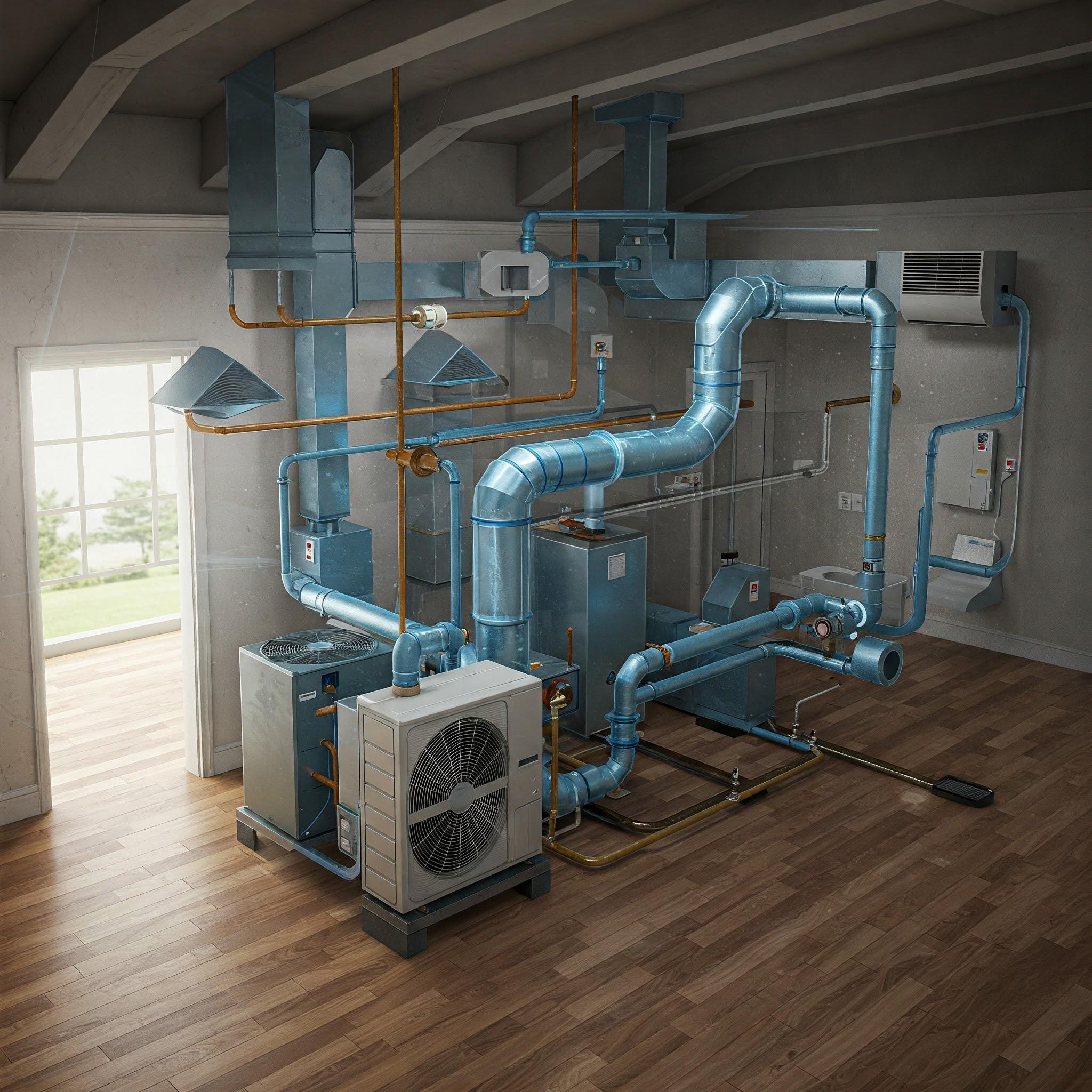Key Components in HVAC Systems: Canvas, Liners, Grilles, Dampers, Diffusers, Fire Dampers, and Volume Control Dampers

In HVAC (Heating, Ventilation, and Air Conditioning) systems, several components work together to ensure efficient air distribution, temperature regulation, and safety. Among these, items like canvas connectors, liners, grilles, dampers, diffusers, fire dampers, and volume control dampers (VCDs) play essential roles. Understanding their functions can help optimize system design and maintenance.
Canvas
A canvas connector is a flexible fabric piece, typically made from heavy-duty cotton or linen. Technicians use it between the ductwork and equipment such as Air Handling Units (AHUs) or Fan Coil Units (FCUs). The primary purpose of canvas is to absorb vibrations and reduce noise. Additionally, it accommodates slight movements due to thermal expansion or mechanical activity, helping maintain the integrity of the duct system.
Function:
- Reduces vibration and noise
- Provides flexibility between duct and unit connections
Liners
Liners are insulation materials installed inside ductwork or HVAC units. Common materials include fiberglass and foam. Liners help dampen noise from air movement, prevent condensation, and enhance thermal insulation. They play a critical role in both acoustic comfort and energy efficiency.
Function:
Sound absorption
Moisture and thermal control
Grilles
Grilles are metal, plastic, or wooden covers placed at air entry or exit points in HVAC systems. They help direct airflow, prevent the entry of debris, and improve aesthetics. Grilles may be fixed or adjustable depending on airflow requirements.
Function:
Regulates and directs airflow
Offers a clean, finished appearance
Blocks large particles or debris
Dampers
Dampers are mechanical devices installed in ductwork to control airflow. They may be manual or motorized and come in various forms depending on application needs. HVAC professionals use dampers to regulate air distribution, isolate zones, and maintain desired room temperatures.
Function:
Controls and balances airflow
Enhances temperature management
Supports energy savings
Diffusers
Diffusers are air distribution devices that spread conditioned air into the room evenly. Available in various shapes and materials, they help reduce air velocity and noise while maintaining comfort across the space. They are usually placed in ceilings, walls, or floors.
Function:
Distributes air uniformly
Reduces air turbulence and noise
Enhances room aesthetics
Fire Dampers
Fire dampers are safety devices installed in ducts to prevent the spread of fire and smoke. In the event of a fire, these dampers automatically close when triggered by heat, sealing off the duct and preventing flames from traveling between building compartments.
Function:
Contains fire and smoke
Complies with fire safety codes
Protects occupants and infrastructure
VCD (Volume Control Damper)
Volume Control Dampers (VCDs) manage the volume of airflow within ductwork. These dampers allow HVAC professionals to balance air distribution across different zones. They can be operated manually or through an actuator as part of an automated system.
Function:
Regulates airflow volume
Enables zone balancing
Contributes to energy efficiency
Conclusion
Each component—whether it’s a canvas connector or a fire damper—plays a specific role in maintaining the performance, efficiency, and safety of HVAC systems. By understanding how these elements function and interact, HVAC professionals can design and maintain systems that offer consistent comfort, lower energy costs, and ensure building safety.
For optimal results, always ensure that these components meet the standards required for your specific environment and system configuration.



